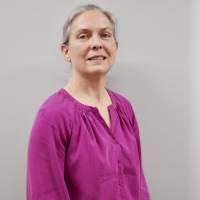Proudly Part of Privia Health
Myofascial Pain Services
Dr. Sarah Arnold

Inspire Integrative Medicine is pleased to announce new treatment options available for those suffering from myofascial pain through care with Dr. Sarah Arnold.
Dr. Arnold received training in these modalities through the U.S Navy and the Air Force Integrative Medicine Center at Malcolm Grow Medical Center and worked for 11 years as a volunteer physician acupuncturist. Please see Dr. Arnold’s bio page to learn more about her training and background.
What is Myofascial Pain?
- Myofascial pain syndrome is a long-term pain condition in which regional muscle pain is characterized by localized muscle tenderness. It is frequently the cause of chronic pain. It involves the muscles and the thin cover of tissues that holds muscles in place, called fascia. Myofascial pain can develop after a muscle has been repeatedly tensed and areas of tight muscle fibers, called trigger points, form in the muscles.
- Myofascial pain syndrome is often underdiagnosed and overlooked, as the symptoms may overlap with other conditions. However, there are a number of different treatment modalities that can help decrease myofascial pain, aside from chronic pain medications.
What are Trigger Points?
- Trigger points are characterized by a hypersensitive spot and they can have strong focal points of tenderness in multiple sites in muscle tissue. Common trigger points can be found in the trapezius muscles (located in the back of neck and shoulders), as these muscles help to maintain posture and the trigger points in this area are a common cause of non-specific and mechanical neck pain. They can also occur at sites of muscle injury or can be related to ongoing stress and chronic muscular tension. Trigger points may compound the symptoms of other conditions (such as arthritis or whiplash injury, and may persist long after the original initiating condition has been resolved).
What sort of treatment is there for Myofascial pain?
- Myofascial pain can be treated with a variety of muscular release therapies, both at home or with a medical provider.
- At Home Treatments
- Massage
- Foam Rollers
- Ice/heat packs
- Stretching exercises and yoga
- Over the counter pain medications (Tylenol, NSAIDs)
- Dietary changes
- Medically-supervised treatments
- At Home Treatments
What conditions can cause Myofascial pain?
- Chronic neck pain
- Chronic back pain
- Headaches
- Fibromyalgia
- Whiplash Injury
- Tendonopathies (such as tennis elbow, iliotibial band pain, rotator cuff strain)
What type of Myofascial Pain Services do we offer?
- Dry needling
- a treatment that involves inserting thin needles into muscles, ligaments, tendons, and scar tissue
- Electroacupuncture
- a modern version of acupuncture that uses electrical currents to stimulate acupuncture points on the body
- Needleless/Myofascial Release Therapy
- a treatment that involves using electrical currents on painful areas without using needles.
How is this different from Acupuncture?
- Myofascial release treatments often utilize thin needles which are inserted into tissue, similar to acupuncture treatments. The needles are typically placed in trigger points in the muscle.
- In contrast, acupuncture is an ancient Chinese practice, which is based on the concept of balancing the body’s natural energy (known as Qi) which flows along pathways (called meridians). Thin needles are strategically placed along the meridians to stimulate the flow of Qi and restore balance.
How do I schedule an appointment for Myofascial Pain Services?
- Please call our office to schedule a consultation with Dr. Sarah Arnold to discuss if these types of treatment are right for you.
- Consults are billed to your insurance, just as any other office visit.
- You do not need an additional referral or authorization to schedule a consultation.
- Initial Appointment
- 1 hour visit
- The first half of the appointment is a directed history and physical exam, and determining if myofascial release and which treatment modality is most appropriate for you.
- The second half of the appointment is an initial trial of the treatment modality and training on how to do additional self-treatment at home.
- Follow-up appointments
- 30 minutes visit
- The number and frequency of visits will be determined after your initial visit.
- Consultations take place in our Wellness Center in Suite I on Monday mornings.
